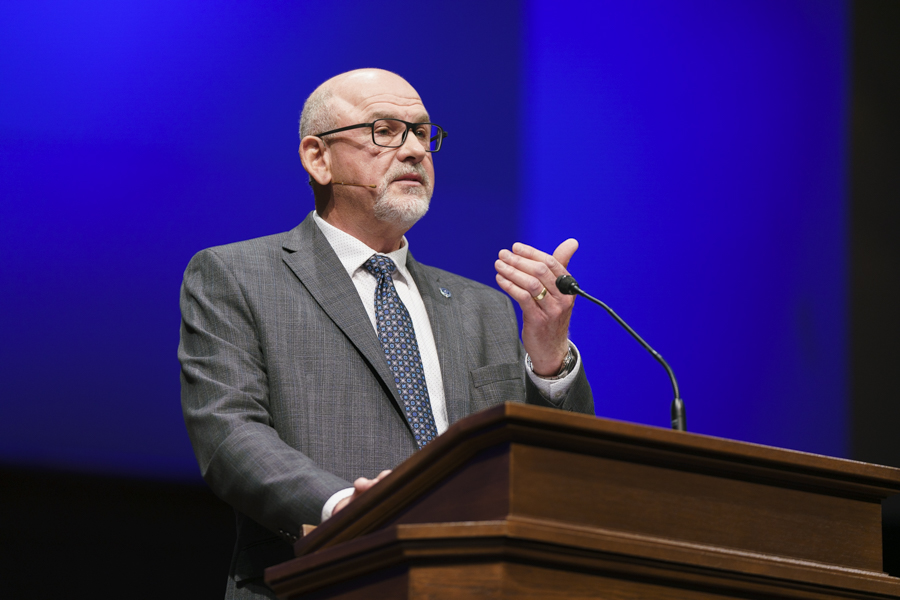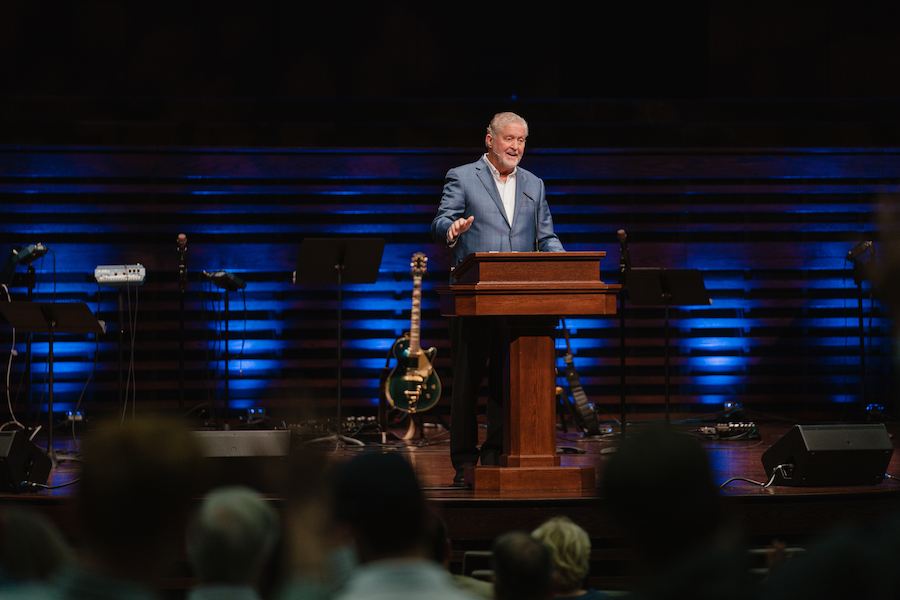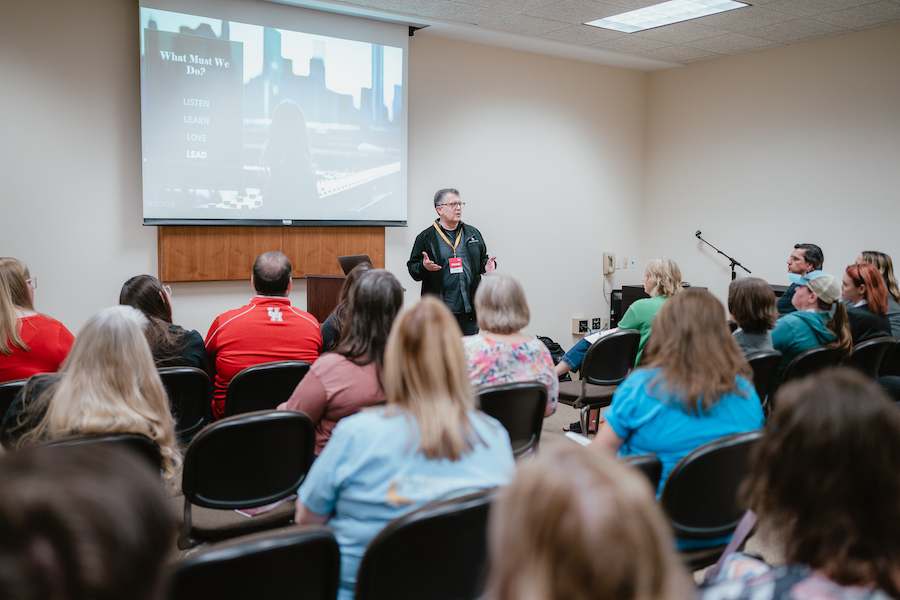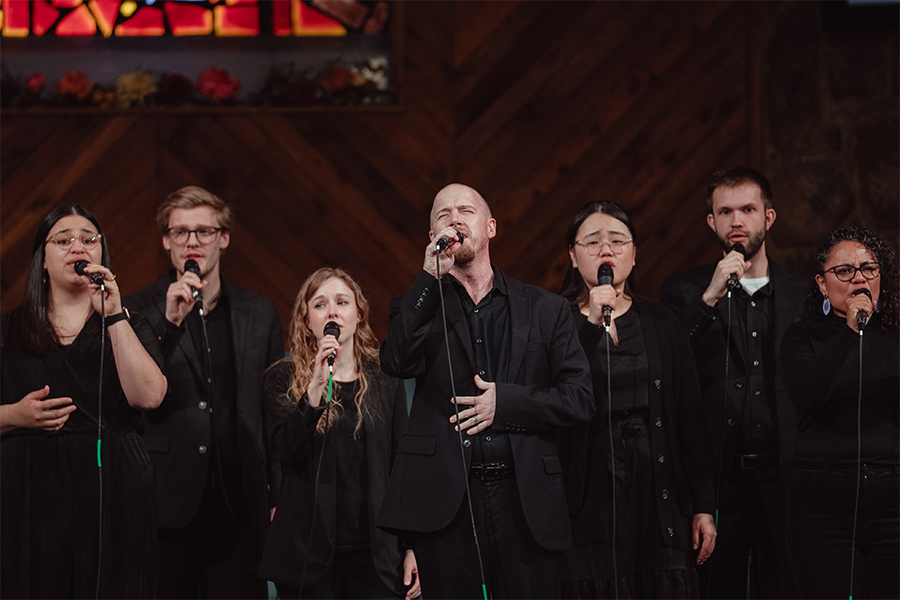Spread out your burdens before the Lord in times of crisis, Cabal preaches

In times of crisis, Christians must spread out their burdens before the Lord and pray, said Ted J. Cabal, professor of philosophy of religion at Southwestern Baptist Theological Seminary, during his chapel sermon, March 24.
“The Lord is kind and good to His people, even when we can’t see it, if we just trust Him and will spread our burdens out before Him,” Cabal said.
Cabal is a two-time graduate of Southwestern Seminary (Master of Divinity, 1990; Ph.D., 1995) and, in the words of President Adam W. Greenway, is in “his second tour of duty” on Southwestern’s faculty, having served at the seminary “a generation ago” before teaching at Southern Baptist Theological Seminary in Louisville, Kentucky. He returned to Southwestern’s faculty in 2020.
When introducing Cabal to the chapel audience, Greenway called him “one of the most brilliant and gifted philosophers and apologists God has ever produced in Southern Baptist life. And I am proud that not only is he a two-time Southwestern Seminary graduate; he is now a two-time Southwestern Seminary faculty member.”
Cabal preached from Isaiah 36-39, wherein Sennacherib, king of Assyria, lays siege to Jerusalem during the reign of Hezekiah, king of Judah. Noting the numerous crises of the past year, including a global pandemic and increased persecution of Christians, as well as general ministry problems and troubling medical diagnoses, Cabal asserted that Hezekiah’s response to the crisis is informative for all Christians today.
Cabal specifically highlighted Isaiah 37:14-15, which explains that after Hezekiah received a taunting and threatening letter from Sennacherib, he “went up to the Lord’s temple and spread it out before the Lord. Then Hezekiah prayed to the Lord.”
Cabal then related his experience of being diagnosed with terminal cancer roughly two decades ago and being given only three years to live. He said that many well-meaning Christians offered prayers for him that provided no comfort, largely because they did not pray for actual healing.
Appealing to Hezekiah’s example, Cabal noted the need, in the midst of crises, to spread out one’s burden before the Lord. He noted that Hezekiah “settled his heart” by focusing on God and His greatness, laying out his situation before God but never doubting His ability to deliver, and then focusing on God’s honor.
Referring to his own experience of suffering through cancer treatment, Cabal said he prayed many “honest” prayers about his situation, and that God, “in His mercy,” gave him “extra time to see His goodness in the land of the living.”
“Will He always deliver us?” Cabal asked. “No. … [But] it doesn’t matter, because we always win.”
Cabal concluded by encouraging Christians to adopt the attitude of Shadrach, Meshach, and Abednego as they were about to be thrown into the fiery furnace. Affirming that God could deliver them, the three men declared that even if He did not, they still would not bow down to King Nebuchadnezzar (Daniel 3:16-18).
“We’re going to face trials, but we always win,” Cabal said. “There’s no outcome in which we don’t win, because we know the end now. And we read it in the Bible in the victory that our Lord Jesus Christ has accomplished for us in His work on the cross, His resurrection, and His place before the Father as our total advocate.”
In his concluding prayer, Cabal asked that God would remind His people of His faithfulness, “that when these times [of crisis] come, we will spread our burdens out before you and trust you and seek to honor you in all that we do.”



